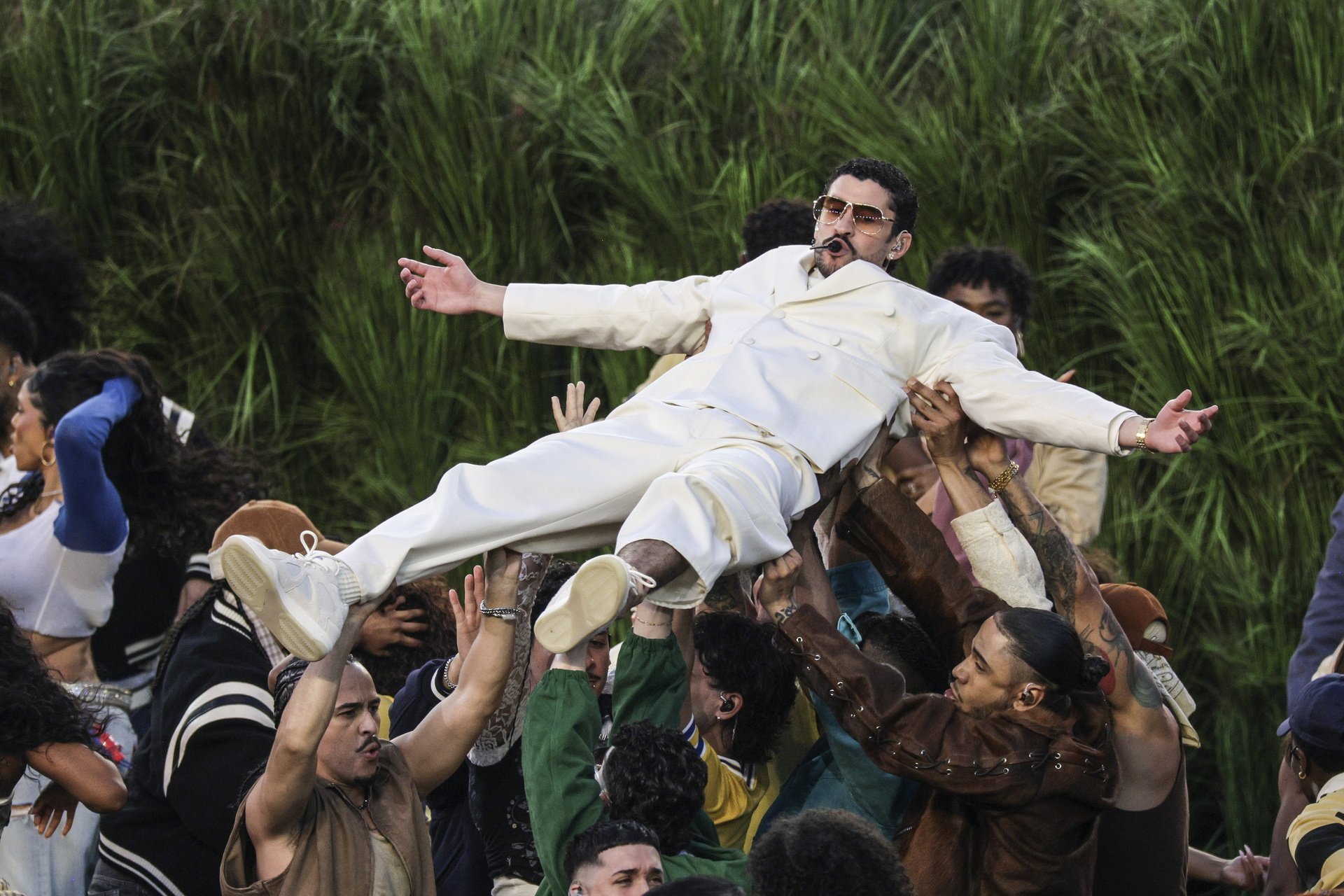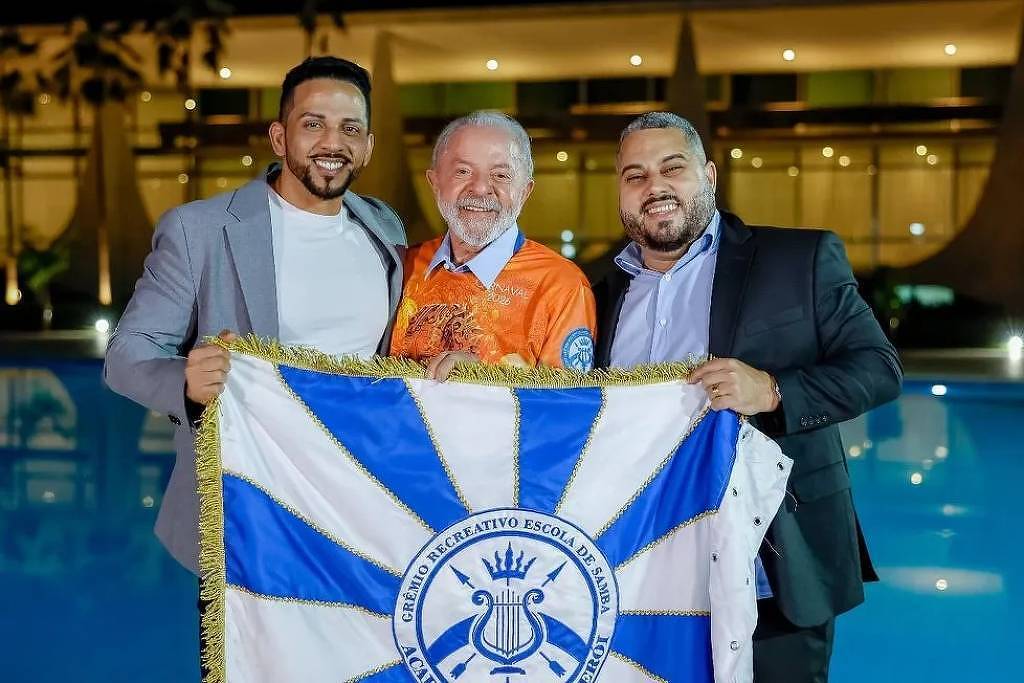Hello! Welcome to another edition of the Brazil Sports newsletter! If you have any questions about this newsletter, or topics you’d like to see covered in future issues, you can reach us at [email protected]
💡 Unlock exclusive insights!
Tired of noise and confusion about Brazil? Our paid subscription cuts through the disinformation, delivering precision-crafted insights trusted by embassies, foreign correspondents, and global consultants.
Get the real story – the analysis decision-makers rely on to understand Brazil's complex landscape.

If a league starts and no one is around to watch it …

The calendar is one of the great villains of Brazilian football. Photo: Vitor Silva/BFR
Later this afternoon, the 2025 season of the Brasileirão — the top flight of Brazil’s national football league — gets underway with a quintet of matches that includes debutants Mirassol playing away to Cruzeiro in the legendary Mineirão stadium.
However, while the first league match of the season should be a moment of anticipation, of maybe-this-is-our-year-type optimism, in Brazil the curtain-raising weekend is likely to pass most football fans by.
The pick of this first round’s fixtures is undoubtedly Sunday’s clash between Palmeiras and Botafogo — last year’s league runners-up and winners, respectively. But even this heavyweight fixture is set to be a damp squib.
Both teams face long journeys midweek to play in the group stage of the Copa Libertadores — South America’s Champions League equivalent — while Palmeiras are only a couple of days removed from a heated defeat against archrivals Corinthians in the final of the São Paulo state championship. As a result, both managers are likely to rest key players in the league opener — something unthinkable in Europe’s top leagues.
Speaking of the São Paulo state final, nine of the 22 players who started Thursday’s match had been flown in from destinations around the world less than 48 hours before kickoff, after representing their countries during the most recent international break.
If the aforementioned examples did not make it clear already, Brazil’s football calendar is a byzantine mess, with domestic and international competitions tripping over one another and very little time in between matches to train or rest — saturating the players, the fans and everyone involved with the sport, and harming the quality of the final product.

Between now and the start of June, Brazilian clubs that have qualified for the Copa Libertadores or Copa Sudamericana will play a match every three days, on average. Comparing that to the first two months of the current season in Europe’s biggest leagues, Real Madrid had a match every five days, Liverpool played once every six.
Brazil’s 2025 schedule is particularly hard-going due to FIFA’s mega new-look Club World Cup in June and July, in which four Brazilian teams will participate. To accommodate a pause during the international club tournament, Brazil’s state championships had to begin early, in the middle of January — at the height of summer in the southern hemisphere.
That said, while making space for Brazil’s Club World Cup qualifiers to play in the tournament in the US, the organizers of Brazilian football have obviously not put much faith in their sides going far in the competition. The final of the Club World Cup will be held on July 13; a full round of Brasileirão matches is scheduled for the same day.
Things stay the same
Pundits, players and coaches have been complaining about Brazilian football’s calendar for decades, being one of the most recurring gripes about the domestic game — along with the quality of playing surfaces, the lack of professional referees and Financial Fair Play regulations.
Even so, the powers appear relatively content with the status quo. On Monday, the Brazilian Football Confederation (CBF) re-elected its president, Ednaldo Rodrigues, with the votes of all 27 state federations and the 40 clubs from Brazil’s top two divisions.
Alessandro Barcelos, president of Porto Alegre club Internacional, said that keeping Rodrigues in the top job was good for “stability.” Changes concerning the organizational issues that plague Brazilian football, therefore, should not be expected any time soon.
Voting within the CBF works as follows: each state federation’s votes are worth three, first-division clubs’ votes are worth two and the second-division teams’ votes are worth one. As such, gaining the support of state football federations is the key — one can reach a majority with the backing of all 27 of these bodies.
Not all state federations are created equally, however. While São Paulo and Rio de Janeiro are the traditional Brazilian football hotbeds, home to the country’s biggest clubs, the states of Amapá, Mato Grosso do Sul, Roraima and Rondônia (each with only one representative club in any of Brazil’s four national divisions) are given just as much power when it comes to electing who will lead the CBF.
The fear of these less-prominent federations is that by changing the status quo, state-level football will lose more and more investment and attention — concerns shared by even Brazil’s biggest states.
Missed opportunity
Oddly enough, had the election been scheduled for a week later, there may have been more impetus for change. Just over 24 hours after Ednaldo Rodrigues was awarded another four-year term, the Brazilian national team was humbled by Argentina in a World Cup qualifier in Buenos Aires — marking perhaps the lowest ebb Brazilian football has reached in more than 30 years.
Argentina trounced Brazil 4-1, and the deficit easily could have been wider in what was Brazil’s heaviest World Cup qualification defeat in history. While Brazil will not miss out on reaching the World Cup, the national team is dreadfully below par. The post-match reaction involved much soul-searching, with fans and pundits quick to point out the irony of Rodrigues’s unanimous re-election as the CBF boss the day before.
The 2025 Brasileirão kicks off at a crossroads for the sport in Brazil. The CBF has decided to sack national team coach Dorival Júnior after the Argentine embarrassment, and the overwhelming feeling is that the country is going in circles. Old problems persist, the same faces are in power, and the quality of football on the pitch is, by many measures, getting worse.
Other stories we’re following
🏆 Corinthians’ state championship win on Thursday night saw them lift their first trophy in six years, seeing off rivals Palmeiras at home. But, due to a clause in his contract, 97% of the club’s BRL 5 million prize went straight to Dutch forward Memphis Depay.
💰 On the subject of prize money, FIFA finally announced its bonus fund for this year’s bumper Club World Cup — and the figures are nothing to be sniffed at, even by major European league standards. There will be a total of USD 1 billion up for grabs, with all Brazilian sides receiving a flat USD 15.2 million just for participating.
Though certainly not among the favorites, if a Brazilian club were to win, it would walk away with more than USD 100 million.
❓ In other Club World Cup news, Flamengo’s preparation for the tournament has been thrown up in the air after one of their group opponents, Mexican side Club León, was kicked out of the competition for breaching ownership rules. León will appeal, but FIFA is set to replace the Mexicans with another team from the Americas.
🤔 Rio de Janeiro Mayor Eduardo Paes claimed that his city will “steal” the right to host an NFL regular season match away from São Paulo in 2026. The league has already confirmed that the Los Angeles Chargers will play their opening game of the 2025 season in São Paulo in September, but has made no such commitments for the following year.
🥊 In her UFC debut last week — in a fight she was offered with just eight days’ notice — 27-year-old strawweight Alexia Thainara walked away with a cool USD 50,000 performance of the night bonus, submitting British veteran fighter Molly McCann within the first round.









